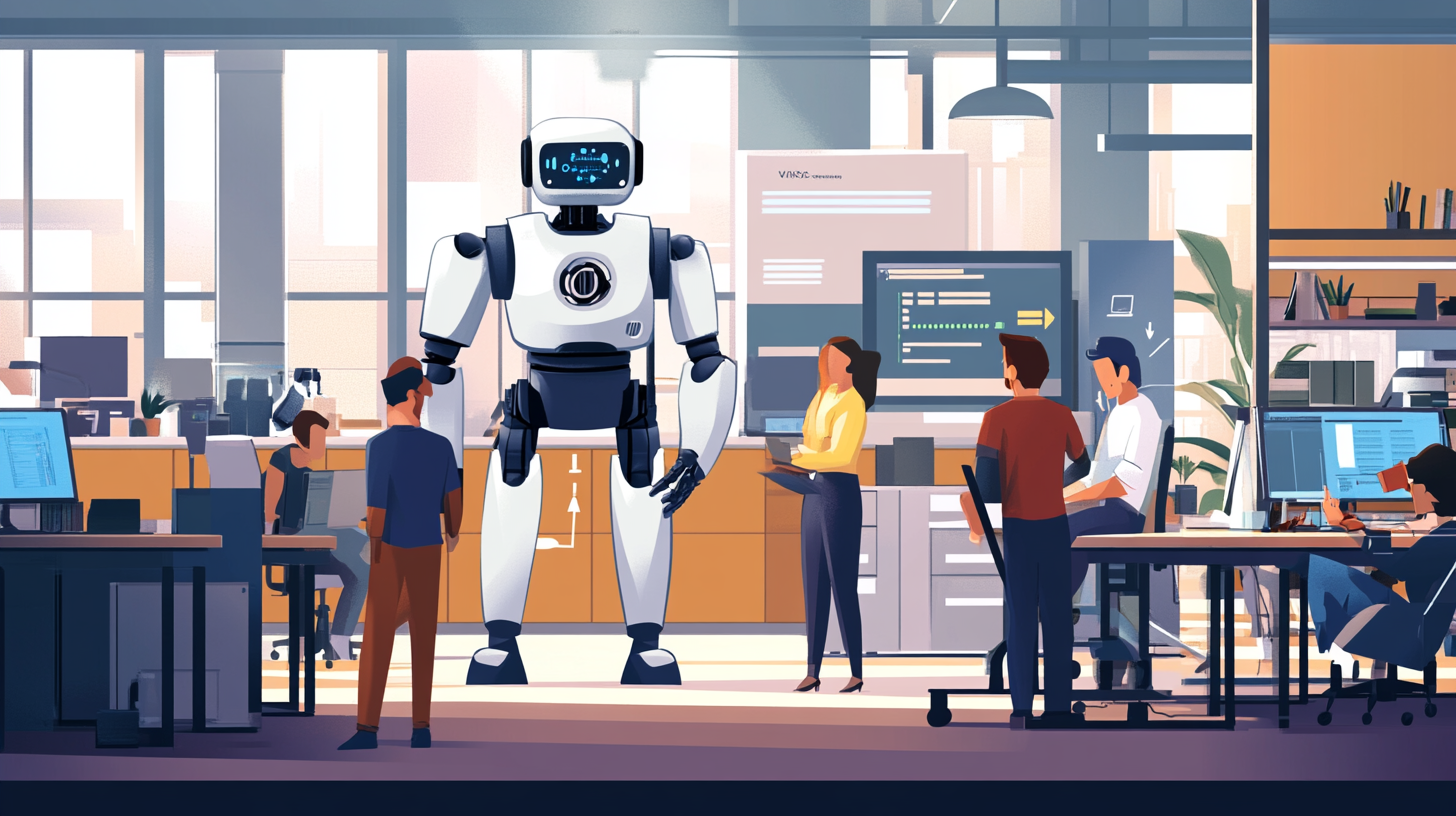Artificial Intelligence (AI) is reshaping the landscape of Human Resources (HR) in 2024, offering innovative solutions for various organisational challenges. As HR professionals explore AI-powered tools, it’s crucial to understand their potential benefits and limitations.
The AI Revolution in HR
AI technology is transforming HR processes, from recruitment to employee engagement. Its ability to analyse vast amounts of data and identify patterns makes it a valuable asset for HR departments seeking to enhance efficiency and decision-making.
Key AI Applications in HR
- Recruitment and Candidate Screening
- AI algorithms can quickly sift through resumes, identifying top candidates based on predetermined criteria. Try JobXRecruiter.com for free
- Video interview analysis tools use AI to assess candidate responses and body language.
- Employee Onboarding
- AI-powered chatbots provide new hires with instant access to company information and FAQs.
- Personalized onboarding experiences tailored to individual roles and preferences.
- Learning and Development
- AI-driven platforms offer personalized learning recommendations based on an employee’s skills, interests, and career goals.
- Adaptive learning systems adjust content difficulty based on individual progress.
- Performance Management
- AI analytics tools provide insights into employee performance trends and potential areas for improvement.
- Continuous feedback systems powered by AI help managers provide timely and relevant feedback.
- Employee Engagement and Wellbeing
- AI-powered surveys and sentiment analysis tools gauge employee satisfaction and identify potential issues.
- Virtual wellness assistants offer personalized health and wellbeing recommendations.
Benefits of AI in HR
- Increased Efficiency: AI automates time-consuming tasks, allowing HR professionals to focus on strategic initiatives.
- Data-Driven Decisions: AI analytics provide valuable insights for informed decision-making.
- Improved Candidate Experience: AI-powered tools can streamline the application process and provide timely updates to candidates.
- Enhanced Employee Experience: Personalized learning and development opportunities contribute to higher employee satisfaction.
- Reduced Bias: When properly implemented, AI can help minimize human biases in recruitment and performance evaluations.
Challenges and Considerations
While AI offers numerous advantages, HR professionals must approach its implementation with caution:
- Data Privacy and Security: Protecting sensitive employee data is paramount when using AI systems.
- Algorithmic Bias: AI systems can perpetuate existing biases if not carefully monitored and adjusted.
- Transparency and Explainability: Some AI models operate as “black boxes,” making it difficult to understand their decision-making processes.
- Human Touch: Overreliance on AI may lead to a loss of personal connection in HR processes.
- Employee Trust: Implementing AI tools requires clear communication to maintain employee trust and buy-in.
Best Practices for Implementing AI in HR
- Start Small: Begin with pilot projects to test AI tools and gather feedback before full-scale implementation.
- Prioritize Transparency: Clearly communicate the purpose and limitations of AI tools to employees.
- Combine AI with Human Expertise: Use AI as a complement to, not a replacement for, human judgment.
- Regular Audits: Continuously monitor AI systems for bias and effectiveness.
- Invest in Training: Ensure HR teams are well-versed in AI capabilities and limitations.
The Future of AI in HR
As AI technology continues to evolve, we can expect to see more sophisticated applications in HR:
- Predictive Analytics: AI models that forecast employee turnover, skills gaps, and future talent needs.
- Natural Language Processing: Advanced chatbots capable of handling complex employee queries and providing nuanced support.
- Augmented Reality (AR) in Training: AI-powered AR experiences for immersive, hands-on training simulations.
- Ethical AI Frameworks: Development of standardized guidelines for ethical AI use in HR practices.
Conclusion
AI is transforming HR practices, offering unprecedented opportunities for efficiency and insight. However, successful implementation requires a thoughtful approach that balances technological capabilities with human expertise and ethical considerations. As HR professionals navigate this AI-driven landscape, they must remain vigilant in ensuring that these tools enhance, rather than diminish, the human aspect of Human Resources.
By embracing AI responsibly, HR departments can position themselves at the forefront of workplace innovation, driving organisational success and employee satisfaction in the AI era of 2024 and beyond.

